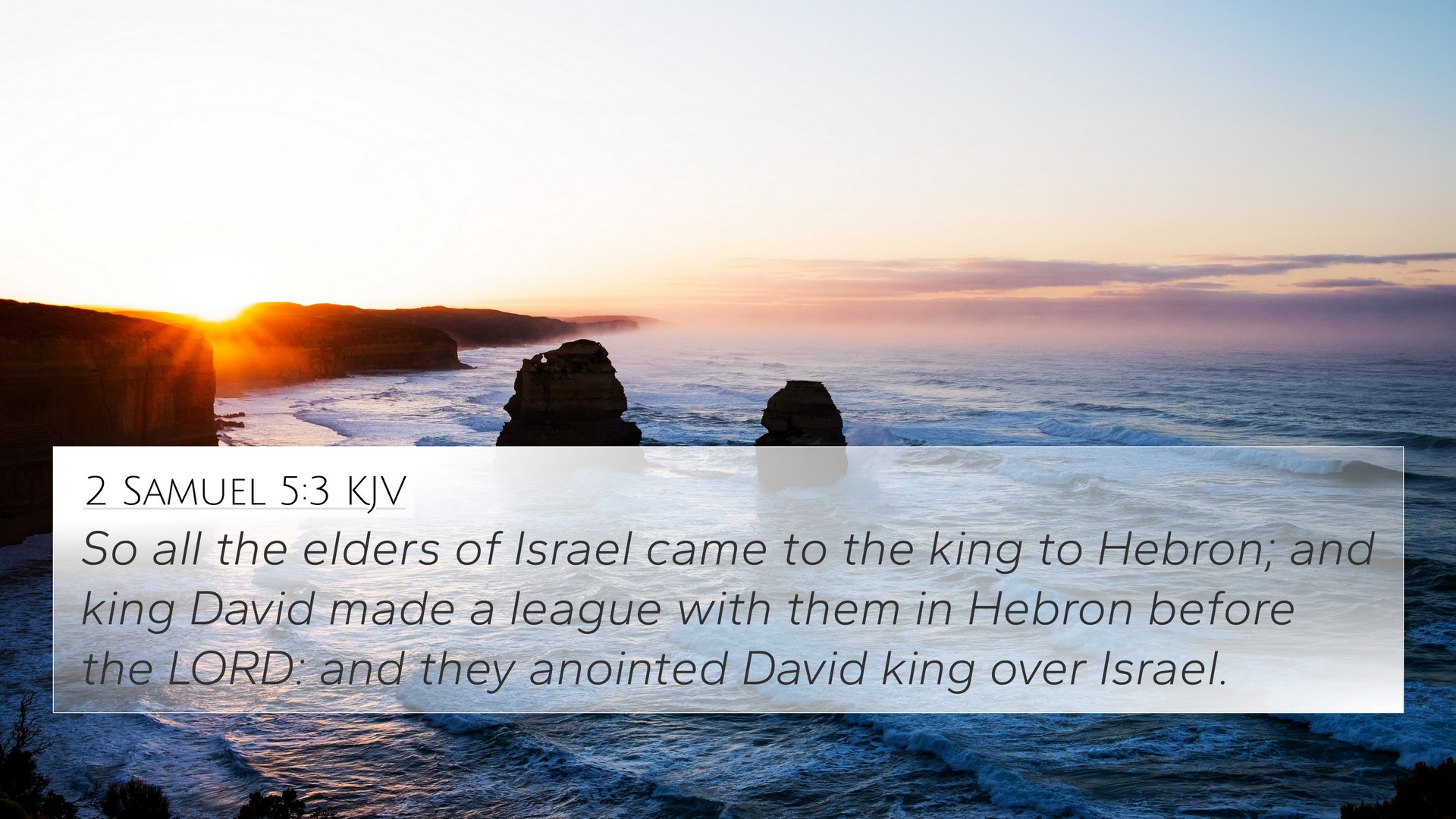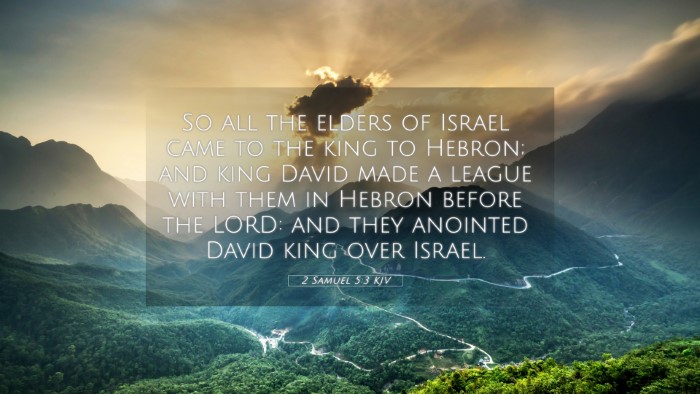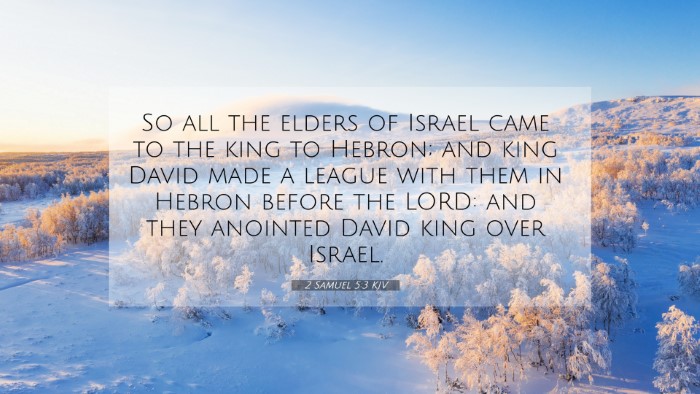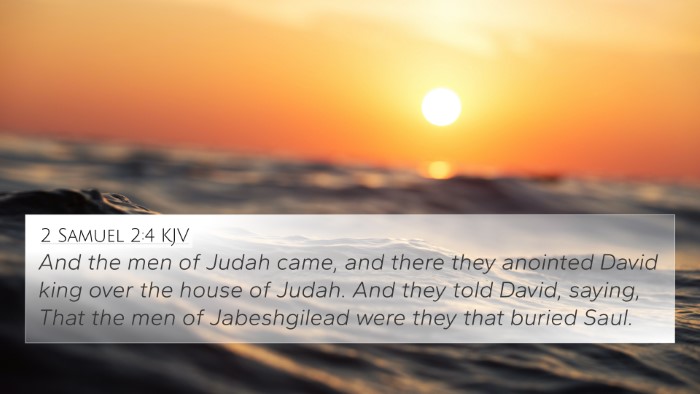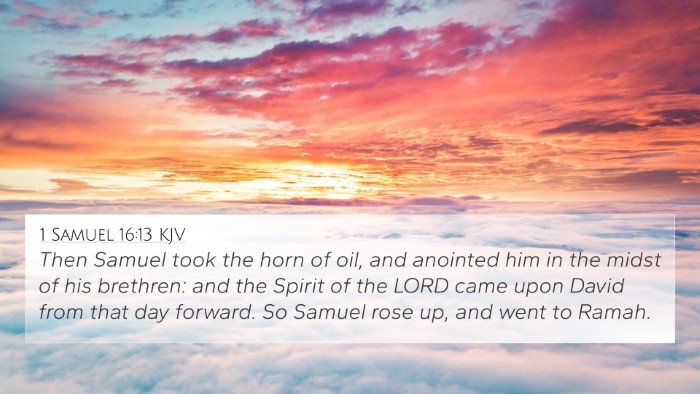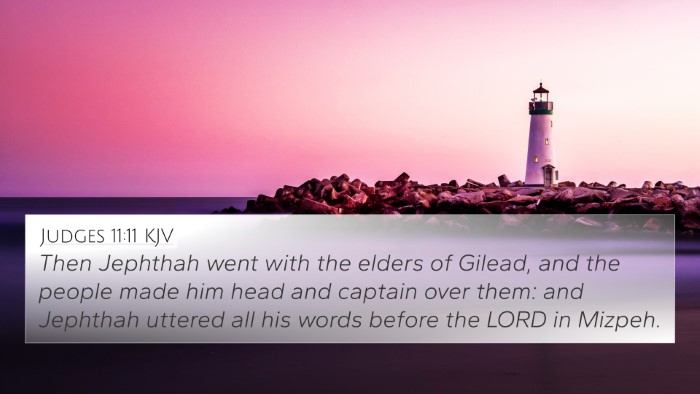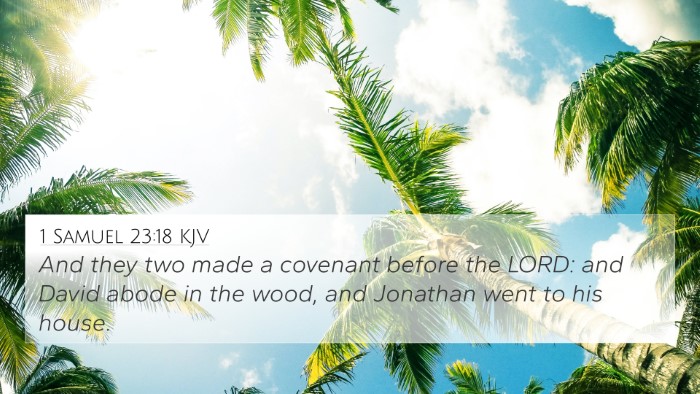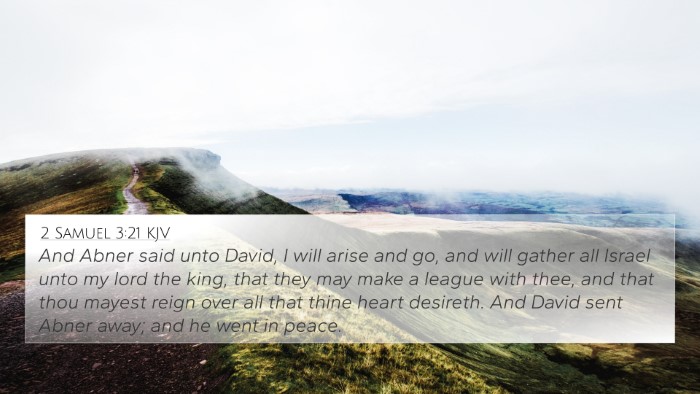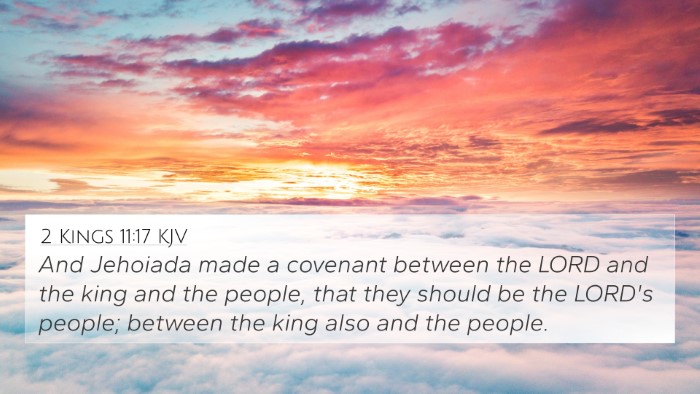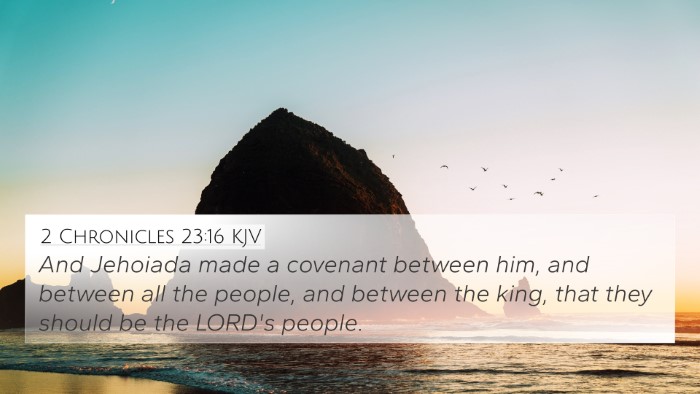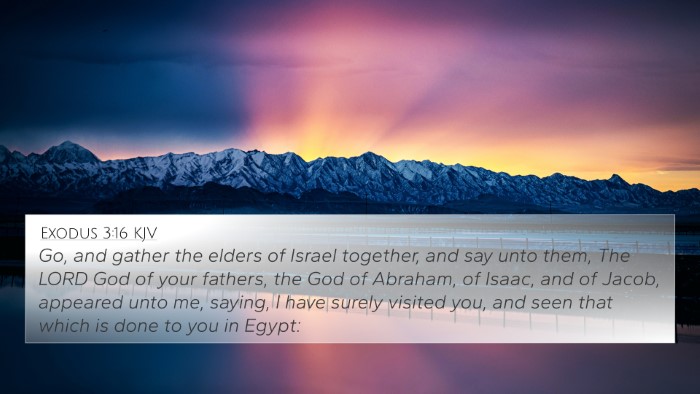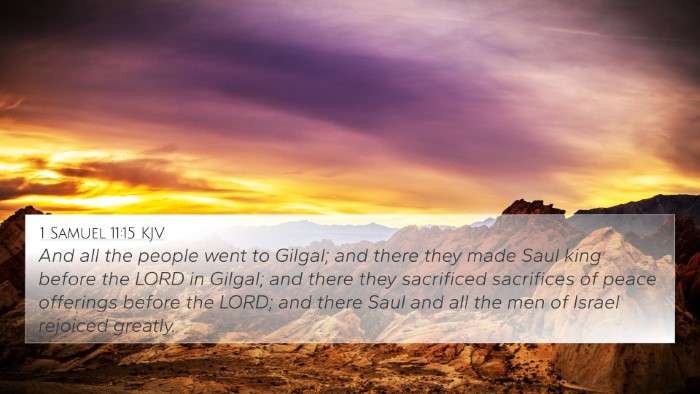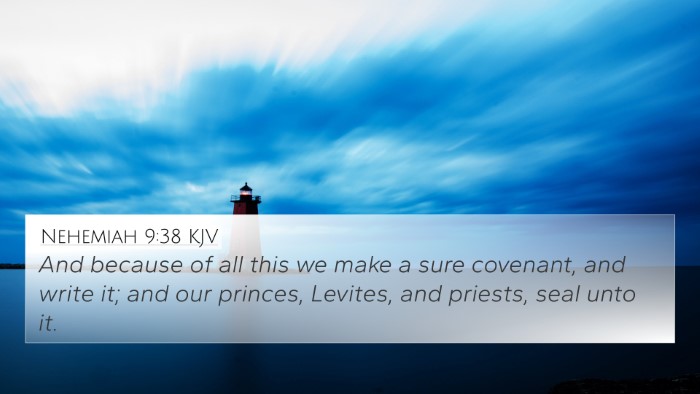Exploring the Meaning of 2 Samuel 5:3
2 Samuel 5:3 states, "So all the elders of Israel came to the king at Hebron; and king David made a league with them in Hebron before the LORD: and they anointed David king over Israel." This verse marks a significant moment in the history of Israel and the reign of David. Below, we explore the meaning and implications of this verse by examining insights from various public domain commentaries.
Commentary Insights
Matthew Henry's Commentary:
- Matthew Henry emphasizes the importance of unity among the tribes of Israel. The elders coming together signifies a collective acknowledgment of David's right to rule.
- He notes that the act of anointing is not just a ceremonial event but a divine appointment, indicating that David's kingship is sanctioned by God.
- Henry also reflects on the political context, wherein David's leadership is crucial for the stability of Israel, especially after the turmoil following Saul's reign.
Albert Barnes' Notes:
- Barnes highlights that this event marks the transition from a divided kingdom to a united monarchy. The elders' support indicates their desire for a peaceful and strong leadership.
- He further explains that the phrase "made a league" signifies a formal agreement, showing the elders' commitment to support David and assist him in ruling effectively.
- Barnes also notes the significance of Hebron as the chosen place for this anointing, as it was historically important to Abraham and the patriarchs.
Adam Clarke's Commentary:
- Clarke emphasizes the divine approval of David's kingship, pointing out that the elders recognized this divine sanction by anointing him.
- He suggests that the elders' gathering at Hebron represents an important covenant moment that signifies their collective responsibility towards the new king.
- Clarke also contextualizes this anointing within the broader narrative of Israel’s history, marking it as a fulfillment of God's promise to David.
Cross-References and Thematic Connections
This verse intertwines with several others, creating thematic connections that enrich our understanding. Here are some cross-references linked to 2 Samuel 5:3:
- 1 Samuel 16:13 - David's previous anointing by Samuel as king.
- 2 Samuel 2:4 - David's initial anointing as king over Judah.
- Psalm 78:70-72 - Reflection on David's selection by God to lead His people.
- 1 Chronicles 11:3 - Confirmation of David's anointing over all Israel.
- Exodus 29:7 - The significance of anointing in establishing authority.
- Acts 13:22 - The New Testament affirmation of David as a man after God’s own heart.
- Isaiah 55:3 - God's covenant relationship highlighted through David’s lineage.
Understanding the Passage
Comprehending 2 Samuel 5:3 involves recognizing the role of kingship in Ancient Israel as a divinely sanctioned authority. The election of a king was profoundly significant, not just politically but spiritually as well.
The Role of Anointing
In the biblical tradition, anointing served as both a physical act and a symbolic representation of God's chosen leader. It illustrated the sacred responsibility bestowed upon David. The act of anointing initiated a new era in Israel's history where David's leadership began to consolidate the tribes under a singular rule.
The Significance of Unity
The gathering of the elders underscores the necessity of unity for Israel's strength and future. Division had hampered Israel's earlier experience under Saul, and now, under David, they sought to restore harmony.
Thematic Reflections
This verse contributes to various themes throughout the Bible, including the thematic biblical verse connections of leadership, covenant, and community. The anointing of David foreshadows the ultimate kingship of Jesus, who is often referred to as the Son of David. This creates a rich narrative that echoes through both the Old and New Testaments.
Conclusion
In summary, 2 Samuel 5:3 encapsulates a pivotal turning point in Israel’s narrative. The insights from Matthew Henry, Albert Barnes, and Adam Clarke provide a multi-faceted understanding of this verse, emphasizing divine appointment, the political context of Israel, and the significance of unity. Additionally, the provided cross-references serve as tools for Bible cross-referencing that deepen our study and understanding of the inter-biblical dialogue regarding leadership and covenant relationships.
Further Studies
For those interested in exploring more about how to use Bible cross-references, consider examining other related scriptures and utilizing a Bible concordance or a Bible cross-reference guide to delve deeper into the connections between these sacred texts.
